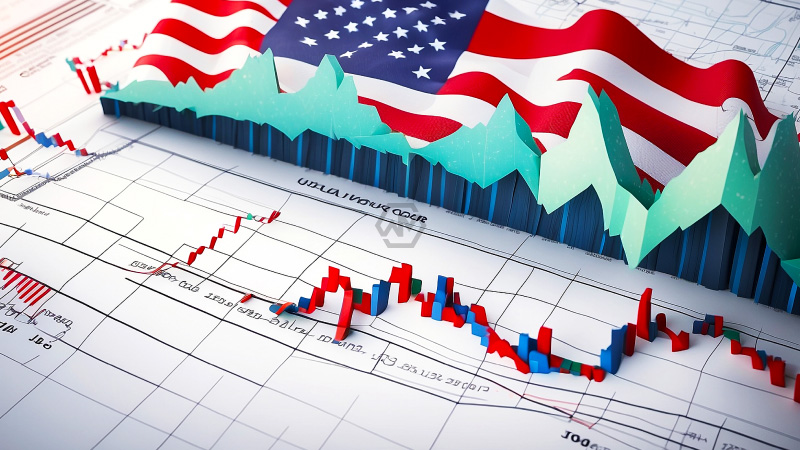- Dow Jones drops 760 points; S&P 500 and Nasdaq also see significant declines.
- Japan’s Nikkei 225 experiences worst crash since 1987, falling 12.4%.
- Fear of prolonged high interest rates by the Federal Reserve drives market instability.
The global financial markets faced a severe sell-off on Monday as growing fears of a slowing U.S. economy caused widespread panic.
Adding to the global market turmoil, South Korea’s Kospi index tumbled by 8.8%, and European stock markets fell over 2%. Even traditionally safer investments like gold and Bitcoin saw declines, with Bitcoin falling below $55,000 from over $61,000 and gold slipping by 1%.
Worldwide Market Sell-Off Triggered by U.S. Economic Fears
Monday’s trading session was marked by significant declines across global financial markets, driven by heightened fears of a slowing U.S. economy. The Dow Jones Industrial Average fell by 763 points, reflecting investor anxiety over recent economic data. The S&P 500 and Nasdaq composite also experienced substantial drops, falling by 2.1% and 2.4% respectively.
The sell-off began in Asia, where Japan’s Nikkei 225 plunged 12.4%, marking its worst day since the Black Monday crash of 1987. The fall was triggered by Friday’s U.S. employment report, which showed a much slower hiring pace than anticipated, raising concerns about the health of the U.S. economy. This data led to fears that the Federal Reserve’s prolonged high interest rates might be stifling economic growth.
European markets were not immune to the panic, with major indices dropping over 2%. South Korea’s Kospi index saw a dramatic 8.8% decline. Even typically stable assets like gold and cryptocurrencies were affected; Bitcoin’s value fell from over $61,000 to below $55,000, and gold prices slipped by 1%.
The market reactions highlight the global sensitivity to U.S. economic indicators and Federal Reserve policies. Investors worldwide are anxious about the potential for prolonged economic slowdown and are responding with broad-based sell-offs. The interconnected nature of global markets means that news from one major economy can quickly influence financial conditions worldwide.
The recent market turmoil underscores the fragility of investor confidence amid uncertain economic conditions. As global markets react to U.S. economic signals, the focus will be on forthcoming data and Federal Reserve policies to gauge potential recovery or further instability.
“Markets are moved by what people think is going to happen in the economy, not by what actually happens.” — Norman Ralph Augustine



